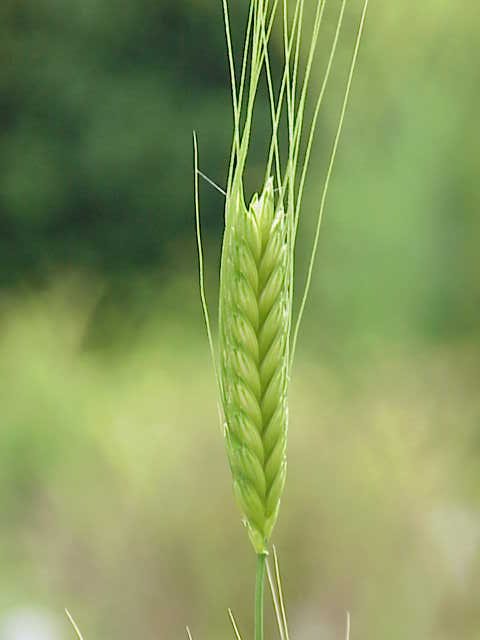|
Lectin-free Diet
The Lectin-free diet (also known as the Plant Paradox diet) is a fad diet promoted with the false claim that avoiding all foods that contain high amounts of lectins will prevent and cure disease. There is no clinical evidence that a lectin-free diet is effective to treat any disease and its claims have been criticized as pseudoscientific. Overview The lectin-free diet forbids all foods that are high in lectins including legumes (beans, chickpeas, lentils, peas), grains, fruit, nightshade vegetables ( tomatoes and potatoes), nuts, seeds and many others. The first writer to advocate a lectin-free diet was Peter J. D'Adamo a naturopathic physician, best known for promoting the blood type diet. D'Adamo has argued that lectins may damage people's blood type by interfering with digestion, food metabolism, hormones and insulin production so should be avoided.Goldstein, Myrna Chandler. (2002). ''Controversies in Food and Nutrition''. Greenwood Press. pp. 221-222. The lectin-fr ... [...More Info...] [...Related Items...] OR: [Wikipedia] [Google] [Baidu] |
Gluten-free Diet
A gluten-free diet (GFD) is a nutritional plan that strictly excludes gluten, which is a mixture of proteins found in wheat (and all of its species and hybrids, such as spelt, kamut, and triticale), as well as barley, rye, and oats. The inclusion of oats in a gluten-free diet remains controversial, and may depend on the oat cultivar and the frequent cross-contamination with other gluten-containing cereals. Gluten may cause both gastrointestinal and systemic symptoms for those with gluten-related disorders, including coeliac disease (CD), non-coeliac gluten sensitivity (NCGS), gluten ataxia, dermatitis herpetiformis (DH), and wheat allergy. In these people, the gluten-free diet is demonstrated as an effective treatment, but several studies show that about 79% of the people with coeliac disease have an incomplete recovery of the small bowel, despite a strict gluten-free diet. This is mainly caused by inadvertent ingestion of gluten. People with a poor understanding of a gluten-f ... [...More Info...] [...Related Items...] OR: [Wikipedia] [Google] [Baidu] |
Fad Diets
A fad diet is a diet that becomes popular for a short time, similar to fads in fashion, without being a standard dietary recommendation, and often making unreasonable claims for fast weight loss or health improvements. There is no single definition of what is a fad diet. The term fad diet encompasses a variety of diets with different approaches and evidence bases, and thus different outcomes, advantages, and disadvantages. Generally, fad diets promise an assortment of short-term changes requiring little to no effort; attracting the interests of uneducated consumers about whole-diet, whole-lifestyle changes necessary for sustainable health benefices. Fad diets are often promoted with exaggerated claims, such as rapid weight loss of more than 1 kg/week, improving health by "detoxification", or even dangerous claims, such as highly restrictive and nutritionally unbalanced food choices leading to malnutrition or eating non-food items like cotton wool. Highly restrictive fad ... [...More Info...] [...Related Items...] OR: [Wikipedia] [Google] [Baidu] |
Quackery
Quackery, often synonymous with health fraud, is the promotion of fraudulent or ignorant medical practices. A quack is a "fraudulent or ignorant pretender to medical skill" or "a person who pretends, professionally or publicly, to have skill, knowledge, qualification or credentials they do not possess; a charlatan or snake oil salesman". The term ''quack'' is a clipped form of the archaic term ', from nl, kwakzalver a "hawker of salve". In the Middle Ages the term ''quack'' meant "shouting". The quacksalvers sold their wares on the market shouting in a loud voice. Common elements of general quackery include questionable diagnoses using questionable diagnostic tests, as well as untested or refuted treatments, especially for serious diseases such as cancer. Quackery is often described as "health fraud" with the salient characteristic of aggressive promotion. Definition Psychiatrist and author Stephen Barrett of Quackwatch defines quackery "as the promotion of unsubstanti ... [...More Info...] [...Related Items...] OR: [Wikipedia] [Google] [Baidu] |
Antinutrient
Antinutrients are natural or synthetic compounds that interfere with the absorption of nutrients. Nutrition studies focus on antinutrients commonly found in food sources and beverages. Antinutrients may take the form of drugs, chemicals that naturally occur in food sources, proteins, or overconsumption of nutrients themselves. Antinutrients may act by binding to vitamins and minerals, preventing their uptake, or inhibiting enzymes. Throughout history, humans have bred crops to reduce antinutrients, and cooking processes have developed to remove them from raw food materials and increase nutrient bioavailability, notably in staple foods such as cassava. Mechanisms Preventing mineral uptake Phytic acid has a strong binding affinity to minerals such as calcium, magnesium, iron, copper, and zinc. This results in precipitation, making the minerals unavailable for absorption in the intestines. Phytic acids are common in the hulls of nuts, seeds, and grains and of great importance in ... [...More Info...] [...Related Items...] OR: [Wikipedia] [Google] [Baidu] |
World Journal Of Gastroenterology
''World Journal of Gastroenterology'' is a weekly peer-reviewed open access medical journal that covers research in gastroenterology. It was established in 1995 and is published by Baishideng Publishing Group, which was included on Beall's list of predatory publishers. The editor-in-chief is Andrzej S. Tarnawski (California State University, Long Beach). Abstracting and indexing The journal is abstracted and indexed in: In 2004, the journal was delisted from the ''Journal Citation Reports'' for excessive self-citation, but it was restored to this index in 2008, at which time its impact factor The impact factor (IF) or journal impact factor (JIF) of an academic journal is a scientometric index calculated by Clarivate that reflects the yearly mean number of citations of articles published in the last two years in a given journal, as i ... was determined to be 2.081. According to the ''Journal Citation Reports'', the journal has a 2020 impact factor of 5.742, ranking it 28th o ... [...More Info...] [...Related Items...] OR: [Wikipedia] [Google] [Baidu] |
British Dietetic Association
The British Dietetic Association (BDA) is a professional association and trade union for dietitians in the United Kingdom. It was founded in 1936 and became a certified union in 1982: it is affiliated to the Trades Union Congress and the Scottish Trades Union Congress. History of Dietetics and the BDA Dietetics started from the middle of the nineteenth century when Florence Nightingale observed the importance of diet and nutrition to convalescence from wars at that time. Following the appearance of the first dietitians in the United States at the start of the twentieth century, the first UK dietitians came from nursing sisters, then working in hospitals. The Edinburgh Royal Infirmary was the first hospital known to develop a dietetic department in 1924. The Infirmary launched the first dietetic diploma course around ten years after the creation of its dietetic department. The BDA’s history also emerged around the same time. The very first meeting of the Association was held o ... [...More Info...] [...Related Items...] OR: [Wikipedia] [Google] [Baidu] |
Harriet Hall
Harriet A. Hall (born July 2, 1945) is a U.S. retired family physician, former U.S. Air Force flight surgeon and skeptic who writes about alternative medicine and quackery for ''Skeptic'' and ''Skeptical Inquirer''. She writes under the name The SkepDoc. Career Hall received her B.A. and M.D. from the University of Washington. She was only the second woman to do her internship in the Air Force and was the first female graduate of the Air Force family to practice residency at Eglin Air Force Base. Hall says she was a "passive skeptic" for quite some time, only reading the literature and attending the various meetings. She met Wallace Sampson at the Skeptic's Toolbox workshop in Oregon. He convinced her to write an article for the ''Scientific Review of Alternative Medicine'' (Interview from 16:08 to 33:25) testing so-called "Vitamin O" products she had seen advertised in the mail. She then began writing articles for ''Skeptical Inquirer''. When she spoke to Michael Shermer at The ... [...More Info...] [...Related Items...] OR: [Wikipedia] [Google] [Baidu] |
Conflict Of Interest
A conflict of interest (COI) is a situation in which a person or organization is involved in multiple interests, financial or otherwise, and serving one interest could involve working against another. Typically, this relates to situations in which the personal interest of an individual or organization might adversely affect a duty owed to make decisions for the benefit of a third party. An "interest" is a commitment, obligation, duty or goal associated with a particular social role or practice. By definition, a "conflict of interest" occurs if, within a particular decision-making context, an individual is subject to two coexisting interests that are in direct conflict with each other. Such a matter is of importance because under such circumstances the decision-making process can be disrupted or compromised in a manner that affects the integrity or the reliability of the outcomes. Typically, a conflict of interest arises when an individual finds themselves occupying two soc ... [...More Info...] [...Related Items...] OR: [Wikipedia] [Google] [Baidu] |
Olive Oil
Olive oil is a liquid fat obtained from olives (the fruit of ''Olea europaea''; family Oleaceae), a traditional tree crop of the Mediterranean Basin, produced by pressing whole olives and extracting the oil. It is commonly used in cooking: for frying foods or as a salad dressing. It can be found in some cosmetics, pharmaceuticals, soaps, and fuels for traditional oil lamps. It also has additional uses in some religions. The olive is one of three core food plants in Mediterranean cuisine; the other two are wheat and grapes. Olive trees have been grown around the Mediterranean since the 8th millennium BC. In 2019–2020, world production of olive oil was . Spain was the largest producer followed by Italy, Tunisia, Greece, Turkey and Morocco. San Marino has by far the largest per capita consumption of olive oil worldwide. The composition of olive oil varies with the cultivar, altitude, time of harvest, and extraction process. It consists mainly of oleic acid (up to 83%), with ... [...More Info...] [...Related Items...] OR: [Wikipedia] [Google] [Baidu] |
Science-Based Medicine
''Science-Based Medicine'' is a website and blog with articles covering issues in science and medicine, especially medical scams and practices. Founded in 2008, it is owned and operated by the New England Skeptical Society and run by Steven Novella, David Gorski, and Harriet Hall. History Started as a skeptically-based medical blog with five writers, ''Science-Based Medicine'' (SBM) launched on January 1, 2008. Steven Novella, a clinical neurologist at Yale University, Harriet Hall, and David Gorski were founding editors, along with Mark Crislip and Kimball Attwood. ''Science-Based Medicine'' is owned an operated by the New England Skeptical Society (NESS), where Novella, the long-standing executive editor of SBM, has also served as the president since inception. Gorski, a surgical oncologist at Wayne State University, serves as the managing editor for SBM. The ''Science-Based Medicine'' blog is affiliated with the Society for Science-Based Medicine (SfSBM), an opinionat ... [...More Info...] [...Related Items...] OR: [Wikipedia] [Google] [Baidu] |





